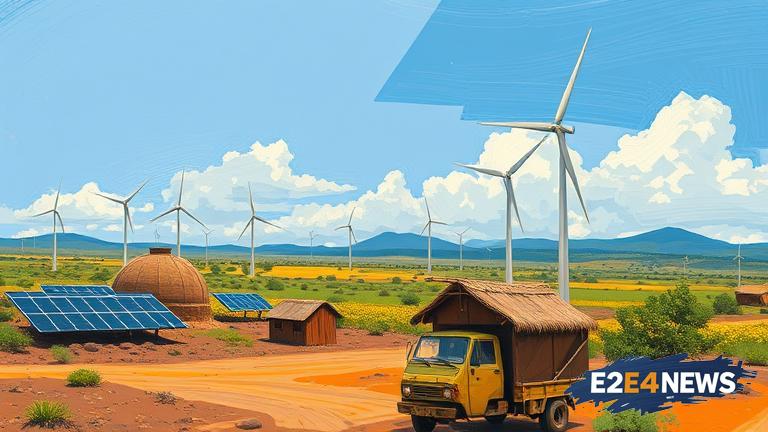The African continent is witnessing a significant shift towards renewable energy, driven by the need to address the pressing issues of energy access, energy security, and climate change. With many countries still struggling to provide electricity to their citizens, renewable energy has emerged as a viable solution. Solar and wind power are becoming increasingly popular, with many African nations investing heavily in these sectors. The cost of renewable energy is decreasing, making it more competitive with fossil fuels. This trend is expected to continue, with the International Energy Agency (IEA) predicting that renewable energy will account for 60% of the world’s power generation by 2050. Africa’s renewable energy market is expected to grow significantly, with countries like South Africa, Morocco, and Egypt leading the way. The African Union’s Agenda 2063 has set ambitious targets for renewable energy, aiming to increase the share of renewable energy in the continent’s energy mix to 50% by 2030. To achieve this goal, African countries will need to invest in renewable energy infrastructure, including solar panels, wind turbines, and hydroelectric power plants. The private sector is also playing a crucial role in the development of Africa’s renewable energy sector, with many companies investing in renewable energy projects across the continent. The African Development Bank has also launched several initiatives to support the development of renewable energy in Africa, including the Sustainable Energy Fund for Africa. The fund provides financing for renewable energy projects, as well as technical assistance and capacity building for African countries. Despite the many opportunities presented by renewable energy, there are still several challenges that need to be addressed. These include the high upfront costs of renewable energy technologies, the lack of infrastructure, and the need for policy and regulatory frameworks that support the development of renewable energy. However, with the right policies and investments in place, Africa’s renewable energy sector has the potential to drive economic growth, create jobs, and improve energy access for millions of people. The benefits of renewable energy are numerous, including reduced greenhouse gas emissions, improved air quality, and enhanced energy security. Renewable energy can also help to reduce poverty and improve healthcare outcomes, by providing energy for healthcare facilities, schools, and other essential services. In addition, renewable energy can help to promote economic development, by providing power for industries, businesses, and homes. The African continent has vast renewable energy resources, including solar, wind, hydro, and geothermal energy. These resources can be harnessed to generate electricity, heat, and cooling, and can also be used for transportation and industrial processes. The development of Africa’s renewable energy sector will require a coordinated effort from governments, private sector companies, and civil society organizations. It will also require significant investments in infrastructure, technology, and human capacity. However, the potential rewards are significant, and could help to transform the continent’s energy landscape and drive sustainable development. The use of renewable energy can also help to reduce the continent’s dependence on fossil fuels, which are a major contributor to climate change. Climate change is having a devastating impact on Africa, with rising temperatures, changing rainfall patterns, and increased frequency of extreme weather events. By transitioning to renewable energy, African countries can help to reduce their carbon footprint and mitigate the impacts of climate change. In conclusion, Africa’s renewable energy revolution is gaining momentum, driven by the need to address energy access, energy security, and climate change. With the right policies and investments in place, the continent’s renewable energy sector has the potential to drive economic growth, create jobs, and improve energy access for millions of people.
